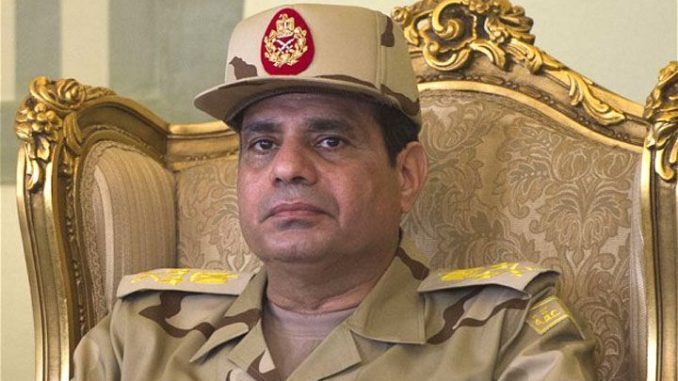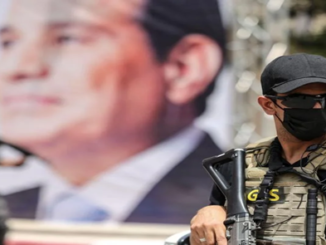
Egypt imposes new rules that allows state to block websites and social media accounts for ‘fake news’ or incitement.
Egypt’s top media regulator put into effect tighter restrictions that allow the state to block websites and social media accounts with more than 5,000 followers, if they are deemed a threat to national security.
The move, implemented on Tuesday, is the latest step by the government of President Abdel Fattah el-Sisi to suppress dissent.
In recent years, Egypt has launched an unprecedented crackdown on reporters and the media, imprisoning dozens and occasionally expelling some foreign journalists.
The new regulations allow the Supreme Media Regulatory Council to block websites and accounts for “fake news,” and impose stiff penalties of up to 250,000 Egyptian pounds ($14,400), all without having to obtain a court order.
Prominent Egyptian journalists have called the measures unconstitutional, saying they grant far-reaching powers to authorities to censor the media, in violation of basic press freedoms.
Chief regulator Makram Mohammed Ahmed refused to comment.
Mohamed Abdel-Hafiz, a board member of the journalists’ union, said the government was threatening journalists with “vaguely defined national security violations, as well as vaguely defined political, social or religious norms”.
The nine-page document gave a broad list of prohibited topics, including “anything inciting violating the law, public morals, racism, intolerance, violence, discrimination between citizens or hatred.”
Media outlets that continue to publish “offending material” will be fined up to five million Egyptian pounds (around $298,000).
The new regulations laid out the same penalty for outlets that publish content without obtaining distribution rights, plus additional compensation.
‘Court order’ needed
Critics of the new measures said the rules were stricter than those approved by legislators in July last year, which they said gave the government almost total control over the media.
“Blocking websites is not included in the laws. The constitution itself states that websites and newspapers cannot be shut down without a court order,” journalists’ union board member Gamal Abdel-Rahim said.
He said the regulatory council had also ignored all of the union’s notes and comments on the new measures.
Since late 2017, some 500 websites, including news outlets and pages of rights groups have been blocked, according to a recent report by an Egyptian watchdog group, the Association for Freedom of Thought and Expression.
Authorities say the measures are necessary to prevent instability as Egypt struggles to revive its economy and combat a rebellion in northern Sinai.
Sisi has frequently suggested political rights are less important than the right to food, housing and other necessities, and has rolled back many of the freedoms won by the 2011 uprising against the country’s former longtime President Hosni Mubarak.
In November, Egypt created a human rights watchdog to protect the state from allegations of rights abuses and defend it on the international stage.
The body does not include any rights activists and its main members are representatives of the foreign ministry, military, intelligence agencies and the interior ministry, which oversees a police force accused of torture and forced disappearances by international rights organizations.
In mid-2013, the military overthrew the democratically elected President Mohamed Morsi, of the now-banned Muslim Brotherhood movement, in a large-scale crackdown. Since then the state has arrested thousands of dissidents, including activists and journalists, as well as Muslim Brotherhood supporters.



